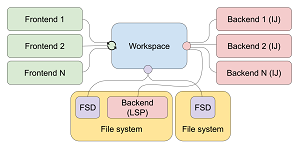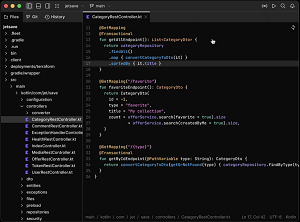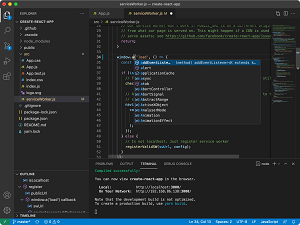News
New Lightweight JetBrains Editor Draws VS Code Comparisons
Software development tooling vendor JetBrains debuted a new lightweight code editor that can act like a full-fledged IDE, immediately drawing comparisons to Microsoft's Visual Studio Code.
The new Fleet editor introduced this week isn't yet available to everyone, as JetBrains is limiting early access with a quota system, so only a limited number of developers can get their hands on it immediately.
It ticks off many features associated with VS Code in addition to being "lightweight," including a focus on collaborative development and being able to work in remote development environments, such as the cloud or a remote machine.
Although JetBrains didn't even mention VS Code in its Nov. 28 announcement, many media pundits immediately characterized it along the lines of an "answer to Visual Studio Code," a "response to Visual Studio Code," a "competitor to Visual Studio Code" and so on.
However, the VS Code comparison started with reader comments to the post.
"Very interesting," read one comment. "Do you plan on making it free (as in freedom) software? As far as I'm concerned, a proprietary editor is not going to compete with VSCode, regardless of how good it is. But if Fleet is going to be free that might make it a VSCode killer for me, more so if you bundle a free C# debugger."
Of course, VS Code, though based on open source code, is not a pure open source product, though it is free to use. To the above comment, a reader replied that: "VSCode is free as in beer, but not free as in freedom. Still, I think a lot of its success is because it's free to use even though it's not Free, so I too would like to see Fleet be free to use."
JetBrains didn't comment on pricing, but it does charge for its other IDEs, including its .NET IDE, Rider. The IntelliJ IDEA product, though, comes in a free community edition and is based on open source code.
 [Click on image for larger view.] Fleet Architecture (source: JetBrains).
[Click on image for larger view.] Fleet Architecture (source: JetBrains).
Fleet supports eight major programming languages right now -- including Microsoft's TypeScript -- and plans include adding support for four more soon, including Microsoft's C#. It does now support Python, which might be the most-used programming language among VS Coders (at least the Python extension is by far and away the most installed VS Code extension).
As far as that IDE functionality mentioned above, it works a little differently from VS Code, which can be expanded functionality-wise by a huge library of extensions that can tackle just about any task imaginable. However, JetBrains says Fleet is turned into an IDE with a simple click of a button that puts it into Smart Mode.
"When you first launch Fleet, it starts up as a full-fledged editor that provides syntax highlighting, simple code completion, and all the things you'd expect from an editor," JetBrains said. "But wait, there's more!
"Fleet is also a fully functional IDE bringing smart completion, refactorings, navigation, debugging, and everything else that you're used to having in an IDE -- all with a single button click."
That's shown in this animated GIF:
 [Click on image for larger, animated GIF view.] Fleet Smart Mode in Animated Action (source: JetBrains).
[Click on image for larger, animated GIF view.] Fleet Smart Mode in Animated Action (source: JetBrains).
The above screenshot of that GIF also shows the visual resemblance to VS Code, which looks like this:
 [Click on image for larger view.] VS Code (source: Microsoft).
[Click on image for larger view.] VS Code (source: Microsoft).
"What we're going to provide with Fleet is a different experience for those who sometimes just want an editor but also want a fully-fledged IDE, those who want to use a single tool as opposed to specialized ones, and of course for those certain scenarios that some of our existing IDEs may not cater for when it comes to distributed development," JetBrains said. "And this brings us to a very important point: Fleet doesn't replace our existing tools but adds further choice. We're continuing to invest in all our IDEs, and Fleet will be making use of these advances."
More information can be found in the Architecture Overview. The application form to try Fleet out can be found here (but don't expect much: JetBrains today tweeted it has received "80K requests in 30 hours!").
About the Author
David Ramel is an editor and writer at Converge 360.